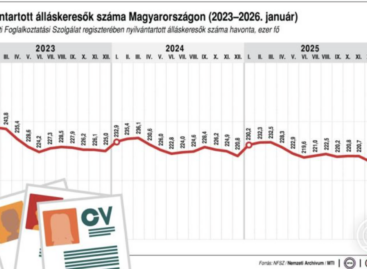A third of the employees would change jobs, and employers don’t even know it
Every third employee will most likely quit in the next year, while companies expect that it will be easier to retain colleagues in the current economic situation, according to EY’s international survey of 17,000 employees and nearly 1,600 employers. The conditions of flexible working also create tension between managers and employees, because office workers would only visit their company once a week.

35 percent of workers would change jobs in the next year, while nearly two-thirds (58%) of employers believe that fewer people will quit as a result of slowing economic growth, EY’s global research points out.
“Companies typically underestimate their colleagues’ opportunities on the labor market”
– emphasized Margit Farkas, partner of EY’s workforce and human resources department. The specialist added that the well-being of workers is critically important today in order for companies to be able to control turnover. Organizational culture and people-centered management play a key role in this, which can be developed effectively even in the short term. Those who feel respected and trusted are much less likely to switch.
Related news
AI is also transforming taxation
🎧 Hallgasd a cikket: Lejátszás Szünet Folytatás Leállítás Nyelv: Auto…
Read more >Sándor Czomba: The number of registered job seekers has decreased by 6 thousand people – a new program helps job seekers find employment
🎧 Hallgasd a cikket: Lejátszás Szünet Folytatás Leállítás Nyelv: Auto…
Read more >Related news
How Coca-Cola plans to build more billion-dollar brands
🎧 Hallgasd a cikket: Lejátszás Szünet Folytatás Leállítás Nyelv: Auto…
Read more >Tesco sets out store expansion plans in 2026 including five former Amazon Fresh sites
🎧 Hallgasd a cikket: Lejátszás Szünet Folytatás Leállítás Nyelv: Auto…
Read more >








